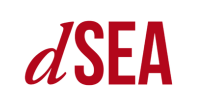
Seminar by Marina Candi
SALA SEMINARI – 1° PIANO, PALAZZO LEVI CASES, VIA DEL SANTO 33 - ORE 15.30
21.02.2019
Seminar by Marina Candi, Reykjavik University
Title: "3D Printing as a Research Context: Two Approaches"
Abstract: This presentation will cover two distinct pieces of research, both of which are positioned within the context of 3D Printing (3DP).
Three-dimensional printing (3DP) is touted as a core element of a new industrial revolution, in which digitization, information and connectivity transform product innovation. However, while the purported benefits of 3DP are compelling, existing research suggests that expected benefits of advanced manufacturing technologies are rarely realized in practice. The first piece of research, recently published in Technovation, addresses the timely question of how to make effective use of a new digital technology. A theoretical framework based on Resource Orchestration Theory is used to analyze survey data collected from US firms that use 3DP for innovation. Internal and external moderators of the relationship between the use of 3DP in innovation and performance are identified. Orchestration, measured as the level of coordination between information technology and manufacturing functions, and technological turbulence, are both found to act as positive moderators. These results indicate that adopting 3DP for innovation brings greater benefits to firms that orchestrate the functions involved in its implementation and use. In other words, how resources such as 3DP are used is at least as important as possessing them. Furthermore, 3DP is likely to be more effective in environments facing external uncertainty than under less turbulent conditions.
Digital innovation ecosystems represent the industry-spanning co-operative and competitive dynamics among firms related to innovations that combine physical and digital elements, and 3DP constitutes a germane example. The second piece of research investigates disruptive digital innovation through the under-explored relationship between two ecological concepts, namely exaptation and ecosystems. Exaptation-driven innovation involves finding unintended functions for pre-existing technologies. The evolution of the 3D printing ecosystem is traced over four decades, from the first patents—representing exaptation-driven innovations—to the present threat of disruption to established manufacturing. Based on a longitudinal narrative study of the formation and growth of the 3D printing ecosystem, a four-phase process model is developed.







